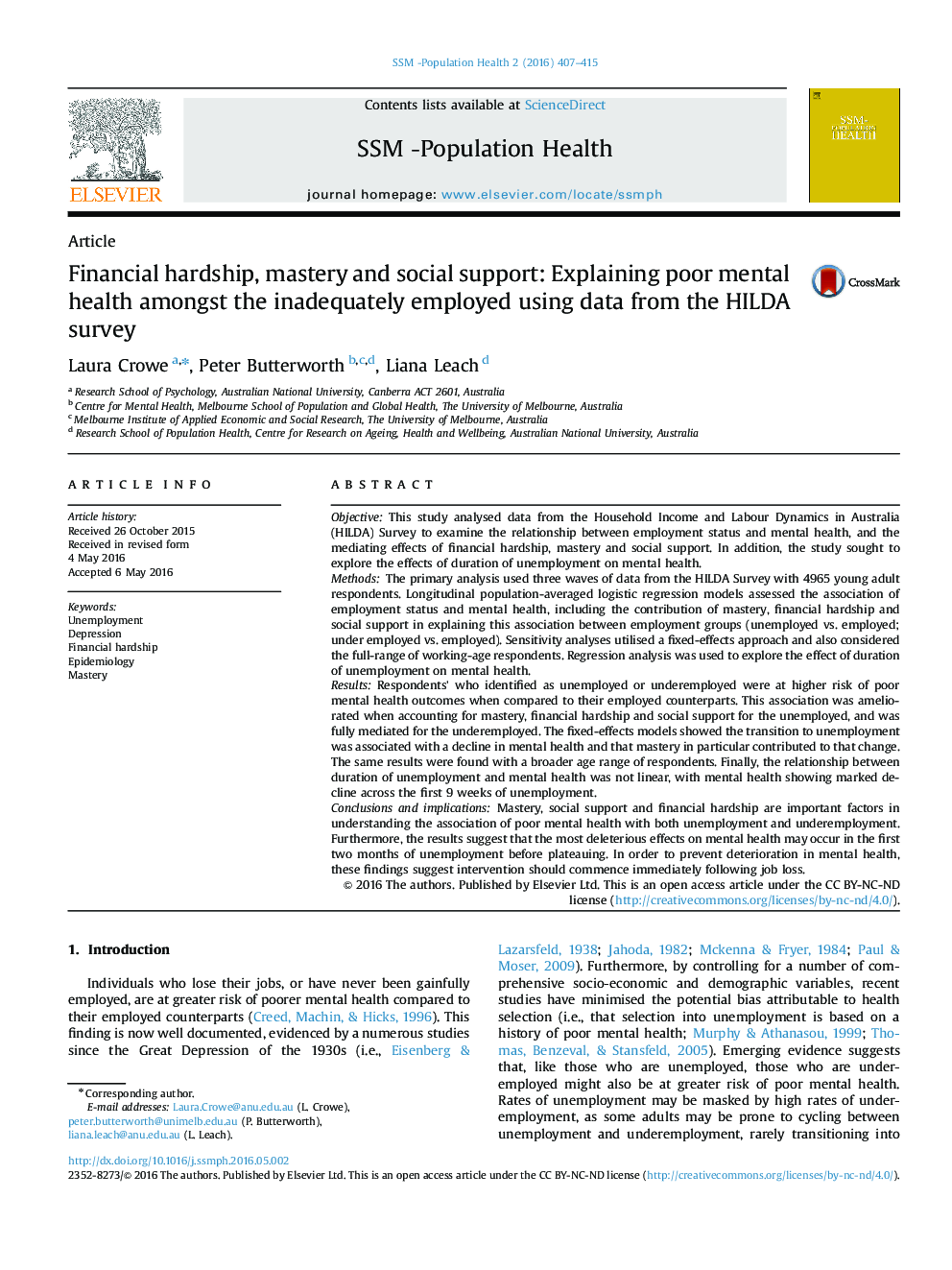| کد مقاله | کد نشریه | سال انتشار | مقاله انگلیسی | نسخه تمام متن |
|---|---|---|---|---|
| 1092347 | 1487260 | 2016 | 9 صفحه PDF | دانلود رایگان |
• Use of large longitudinal nationally representative data from three years.
• Compared to employment, unemployment and underemployment pose serious risk for poor mental health.
• Differences in mental health can be largely explained by hardship, social support and mastery.
• Underemployed also need to be considered in research as a group at risk for poor mental health.
• Mental health trajectory over time unemployed suggests a “shock” following job loss.
ObjectiveThis study analysed data from the Household Income and Labour Dynamics in Australia (HILDA) Survey to examine the relationship between employment status and mental health, and the mediating effects of financial hardship, mastery and social support. In addition, the study sought to explore the effects of duration of unemployment on mental health.MethodsThe primary analysis used three waves of data from the HILDA Survey with 4965 young adult respondents. Longitudinal population-averaged logistic regression models assessed the association of employment status and mental health, including the contribution of mastery, financial hardship and social support in explaining this association between employment groups (unemployed vs. employed; under employed vs. employed). Sensitivity analyses utilised a fixed-effects approach and also considered the full-range of working-age respondents. Regression analysis was used to explore the effect of duration of unemployment on mental health.ResultsRespondents’ who identified as unemployed or underemployed were at higher risk of poor mental health outcomes when compared to their employed counterparts. This association was ameliorated when accounting for mastery, financial hardship and social support for the unemployed, and was fully mediated for the underemployed. The fixed-effects models showed the transition to unemployment was associated with a decline in mental health and that mastery in particular contributed to that change. The same results were found with a broader age range of respondents. Finally, the relationship between duration of unemployment and mental health was not linear, with mental health showing marked decline across the first 9 weeks of unemployment.Conclusions and implicationsMastery, social support and financial hardship are important factors in understanding the association of poor mental health with both unemployment and underemployment. Furthermore, the results suggest that the most deleterious effects on mental health may occur in the first two months of unemployment before plateauing. In order to prevent deterioration in mental health, these findings suggest intervention should commence immediately following job loss.
Journal: SSM - Population Health - Volume 2, December 2016, Pages 407–415
